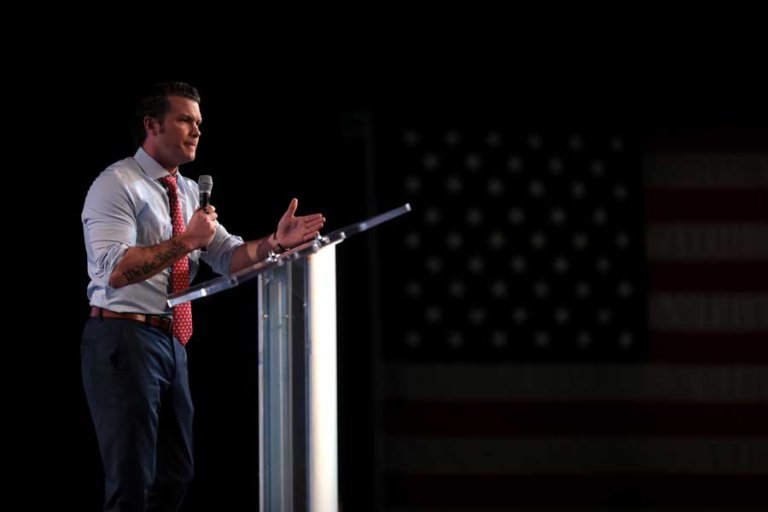Meta's Future Under A Trump Presidency: Zuckerberg's Challenges

Table of Contents
Increased Regulatory Scrutiny
A Trump administration is likely to pursue a more aggressive regulatory approach towards Big Tech, intensifying the challenges already faced by Meta. This increased scrutiny could manifest in several key areas.
Antitrust Actions
Renewed antitrust investigations and potential break-ups of Meta are a real possibility, given Trump's past rhetoric and actions. This poses a significant threat to the company's structure and market dominance.
- Increased legal fees and potential fines: The legal costs associated with defending against antitrust lawsuits would be substantial, placing a strain on Meta's resources. Significant fines could further impact profitability.
- Disruption of operations and potential loss of market share: Any restructuring mandated by antitrust regulators would be disruptive to Meta's operations, potentially leading to inefficiencies and a loss of market share to competitors.
- Impact on Meta's ability to innovate and acquire companies: Antitrust concerns could severely limit Meta's ability to innovate through acquisitions, hindering its growth and competitive edge. Future mergers and acquisitions would face much stricter scrutiny.
Content Moderation Scrutiny
Expect heightened pressure on Meta's content moderation policies, potentially leading to stricter regulations or demands for greater transparency from a Trump administration focused on "Meta Trump Presidency" implications.
- Increased pressure to remove content deemed "offensive" by the administration, potentially stifling free speech: Balancing free speech with the need to combat harmful content is a constant challenge for Meta, and a Trump administration might exert undue pressure to remove content aligned with its political views.
- Potential for fines or legal action for perceived bias in content moderation: Accusations of bias in content moderation are already common, and a Trump administration might use these accusations as grounds for legal action or financial penalties.
- Challenges in balancing free speech principles with the need to combat misinformation and harmful content: This delicate balancing act will become even more difficult under increased political pressure from a Trump administration.
Political Polarization and Misinformation
A Trump presidency often amplifies political polarization, creating significant challenges for Meta in managing its platform and mitigating risks associated with a Meta Trump Presidency.
The Spread of Misinformation
Meta's role in combating the spread of misinformation and disinformation will be under intense scrutiny. The platform's algorithms and content moderation policies will be constantly evaluated for their effectiveness.
- Increased pressure to implement more robust fact-checking mechanisms: Expect increased demands for more rigorous fact-checking and verification processes, potentially involving third-party fact-checkers and independent oversight.
- Difficulty in moderating politically charged content without accusations of bias: Navigating politically charged content and accusations of bias will become increasingly challenging, requiring careful and transparent content moderation policies.
- Potential for increased user anger and distrust: Users may express anger and distrust toward Meta's content moderation efforts, regardless of the platform's actions.
Amplified Political Rhetoric
The platform could become a battleground for increasingly aggressive political rhetoric, potentially leading to increased user harassment and online violence.
- Increased investment in safety features and content moderation technologies: Meta will likely need to invest heavily in advanced safety features and artificial intelligence to detect and prevent harassment and violence.
- Need for improved community standards and enforcement mechanisms: Clearer community standards and more effective enforcement mechanisms will be crucial in maintaining a safe online environment.
- Potential impact on user engagement and advertiser confidence: Increased toxicity and harassment could negatively impact user engagement and advertiser confidence, affecting Meta's bottom line.
Impact on Advertising Revenue
A turbulent political climate can negatively affect Meta's advertising revenue streams, adding to the complexities of a Meta Trump Presidency.
Advertiser Concerns
Advertisers may hesitate to invest in Meta's platforms if they perceive an increased risk of negative association with political controversies.
- Potential loss of advertising revenue: Uncertainty and negative associations could lead to advertisers pulling their campaigns, resulting in a loss of revenue for Meta.
- Need to reassure advertisers about Meta's commitment to a safe and brand-safe environment: Meta needs to actively reassure advertisers of its commitment to a safe and brand-safe environment to maintain advertising revenue.
- Development of more sophisticated targeting and measurement tools: More sophisticated tools are needed to ensure ads are targeted effectively and measured accurately, minimizing the risk of negative associations.
Changes in Advertising Policies
The administration might pressure Meta to alter its advertising policies, particularly regarding political advertising.
- Increased regulatory oversight of political advertising on Meta's platforms: Expect increased scrutiny and potential new regulations impacting political advertising on Meta.
- Potential limitations on the types of political ads allowed: The administration may impose restrictions on the types of political ads allowed, impacting the revenue generated from political advertising.
- Need to adapt to changing regulations and advertiser demands: Meta will need to adapt quickly to changing regulations and advertiser demands to remain competitive.
Conclusion
A Trump presidency presents a complex and potentially perilous future for Meta. Increased regulatory scrutiny, intensified political polarization, and potential disruptions to advertising revenue are all significant challenges. Zuckerberg and Meta must proactively address these concerns by investing in improved content moderation, engaging in constructive dialogue with regulators, and demonstrating a clear commitment to combating misinformation while upholding free speech principles. Ignoring these challenges could have dire consequences for Meta's future. Understanding the potential impact of a Meta Trump Presidency is crucial for navigating the changing digital landscape. Prepare for a shift in the power dynamics by strategically planning for potential regulatory changes and fostering a more resilient and transparent platform.

Featured Posts
-
 Latest On Jalen Brunsons Injury Impact On The Knicks Season
May 17, 2025
Latest On Jalen Brunsons Injury Impact On The Knicks Season
May 17, 2025 -
 Analysis Trumps Plans For A New F 55 Fighter And F 22 Enhancement
May 17, 2025
Analysis Trumps Plans For A New F 55 Fighter And F 22 Enhancement
May 17, 2025 -
 Ex Mariners Star Blasts Teams Inaction During Offseason
May 17, 2025
Ex Mariners Star Blasts Teams Inaction During Offseason
May 17, 2025 -
 Mikal Bridges On Knicks Starters Minutes A Request To Coach Thibodeau
May 17, 2025
Mikal Bridges On Knicks Starters Minutes A Request To Coach Thibodeau
May 17, 2025 -
 Office365 Executive Inboxes Targeted In Multi Million Dollar Hacking Scheme
May 17, 2025
Office365 Executive Inboxes Targeted In Multi Million Dollar Hacking Scheme
May 17, 2025
Latest Posts
-
 Week In Review Reflecting On Past Failures
May 17, 2025
Week In Review Reflecting On Past Failures
May 17, 2025 -
 Conference Champions Crowned A Track Roundup Of Award Winners
May 17, 2025
Conference Champions Crowned A Track Roundup Of Award Winners
May 17, 2025 -
 Track And Field Roundup Celebrating All Conference Athletes
May 17, 2025
Track And Field Roundup Celebrating All Conference Athletes
May 17, 2025 -
 2024 25 High School Confidential Key Events Of Week 26
May 17, 2025
2024 25 High School Confidential Key Events Of Week 26
May 17, 2025 -
 15 Day Il For Mariners Bryce Miller Elbow Injury Update
May 17, 2025
15 Day Il For Mariners Bryce Miller Elbow Injury Update
May 17, 2025
